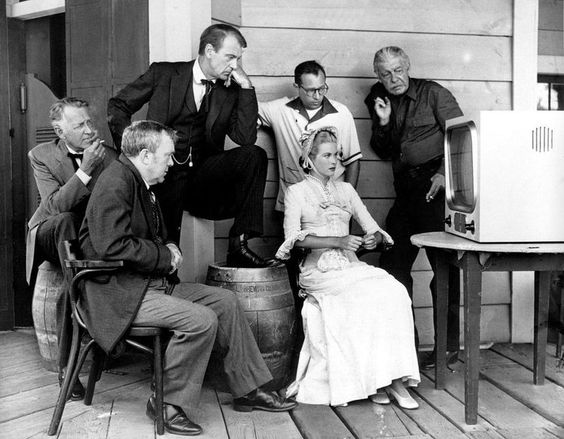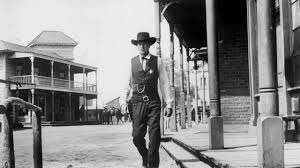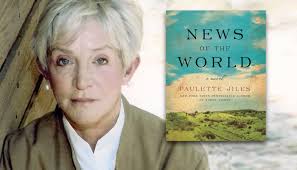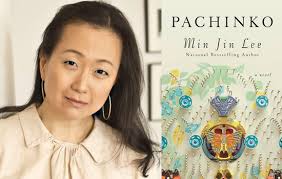Sara Davidson
|April, 5, 2017
When in despair with the fortune of our country, I began reading High Noon: The Hollywood Blacklist and the Making of an American Classic, by Glenn Frankel. His thesis is that Carl Foreman, the screenwriter, created High Noon as a parable about how he was abandoned by friends and community when he stood up to the House Un-American Activities Committee for what he believed in—freedom of thought and speech.
I was surprised to learn that when the Blacklist arose in the late ‘40s and ‘50s, a Democrat, Harry Truman, was
President, we had a democratic Congress, and a liberal majority on the Supreme Court. Yet people were being forced to sign loyalty oaths to keep their jobs, and friends were harassed and pressured by HUAC to turn against friends, naming them as former Communists and causing them to lose their ability to work.

Foreman at HUAC hearing, 1951
Fear that Communists would take over the U.S. was so intense that many in government and the film business were willing to trounce on the liberties of others, often to save their own jobs.
The similarity to the present is obvious. As Frankel writes, “Conservatives who had resisted the growth of the federal government…(under FDR) joined forces with embittered working-class populists who felt excluded from their share of prosperity.” They believed, Frankel continues, that “usurpers—liberals, Jews, and Communists in those days; gays, Muslims, and undocumented immigrants today—had stolen their country, and…they were determined to claw it back.”
Yet in time, the country had recovered, tried to right some of the wrongs that had been committed, and stumbled on.

On the set of High Noon, watching the World Series.
Foreman stands behind Grace Kelly and beside Cooper.
Reading this was a tonic for the malaise I felt. I was sick of talking about politics, sick of being glued to the news—all Trump all the time. Sick of feeling worried and helpless, sick of emails asking me to sign petitions and donate funds for efforts that did not accomplish much.
I began to seek refuge in music and books. I started binge reading as I never had before, four or five books at a time, downloading them on Kindle, listening on Audible, and reading weathered paperbacks like Gore Vidal’s Lincoln. It’s been a joy, and I’d like to tell you about some of the books that have succeeded in carrying me to alternate worlds.
HIGH NOON. The book glides back and forth between the making of the film and the reign of terror conducted by HUAC, which resulted in the Blacklist. I was in junior high in L.A. at the height of the Blacklist, and had only a dim understanding of what was going on. My mother had a friend, though, whose sister was the wife of Carl Foreman, but I did not realize how masterful a writer he was or the torture he’d been put through.
I remember that when my father drove me to U.C. Berkeley for my freshman year, his parting words were: “Don’t sign anything, and be careful what you join. I’ve seen how these things can come back later to hurt you and ruin your life.” What was he talking about? It was the Sixties, and I would soon be joining demonstrations for civil rights, marching around the Sheraton-Palace in San Francisco to demand that the hotel hire Negroes.
Would I have joined the Communist party if I’d been young in the 1930’s, appalled by the Depression that put masses in the streets, jobless and hungry? Probably. Young people like Foreman and his wife, Estelle, who were idealists and liberals, were drawn to Karl Marx’s concept of “from each according to his ability, to each according to his need.” Later they became disillusioned and dropped out of the party, as did most on the Blacklist, but that wasn’t enough to clear them with HUAC. They were required to “name names” of people they’d known who’d been Communists in their youth.
Would I have caved if called by HUAC, to protect my career? I’d like to think not, but I don’t believe that’s possible to know. Frankel’s book shows how people struggled with what to do, given poor options. Some took one road and others took the opposite. Foreman refused to cooperate with the committee, while Stanley Kramer, the film’s producer and a well-known liberal, tried to work with HUAC and cut Foreman from the film.
Anyone who loves movies will be spurred, as I was, to watch High Noon again, to see Gary Cooper, as the town sheriff, making the walk to the train station alone, abandoned by his wife, friends and the entire town, who want him to run. But Cooper knows he must stay and face the four gunmen determined to kill him for sending their leader to jail.

Although I knew how this would end, watching it on film left me awed and speechless. It’s clear why High Noon is taught in film schools around the world. But there were so many hurdles and conflicts in the production that no one who worked on it—especially the studio that funded it—expected the film to do well, let alone become a classic.
Decades later, Stanley Kramer told an interviewer that a film can have the highest quality ingredients—outstanding script, actors, director, music—“and you put the whole thing together, and you see it, and you couldn’t care less. Then a film comes along that has a kind of driving spine to it, that makes everything fizz. Wow! It terribly excites you. Now that kind of chemistry happened in High Noon.”
NEWS OF THE WORLD, by Paulette Jiles. I downloaded the book after reading positive reviews, and was enchanted by the characters, the story, and the writing. Jiles was a poet before she wrote novels, and her exquisite voice and sweeping rhythm pulled me through this tale.

In the wake of the Civil War, Captain Kydd, a retired officer in his sixties, travels from town to town in rural Texas, reading aloud from newspapers he collects from faraway places, to audiences who are starved for news of the world.
At the opening, Kydd meets a 10-year-old girl, Johanna, who was kidnaped four years earlier by Kiowa Indians after they’d killed the rest of her family. She’s been “returned” to the U.S. army as part of a treaty, and the captain is enlisted to transport her to the home of cousins in San Antonio, 400 miles away. Johanna is angry and rebellious, with no memory of English or her name, and no wish to be “returned” to people she’s never met. It’s a forced road trip, by wagon, and I’ll say no more, except that when the book ended, I missed the characters and the Old West, in which I’d lived for two weeks, terribly.
PACHINKO, by Min Jin Lee. The novel opens in 1910 in a fishing village in Korea. A teenage girl, Sunja, who works with her mother in their small boarding house, falls in love with a handsome and wealthy fish buyer from Japan. When she becomes pregnant, he tells her that he’s married with three daughters, but will set her up in her own house and support her and the child.
The girl refuses, withdrawing in shame, but a missionary staying at the boarding house offers to marry her and raise the child as his own. He brings Sunja, the son she bears, and her mother to Japan, where Koreans are considered dirty and face harsh discrimination. The son’s biological father, the fish buyer, secretly keeps track of the family and helps them survive during World War II.
Faced with limited options in Japan, Sunja cooks and sells kimchi in the open market, while men in the family find jobs in Pachinko parlors, where their hard work, although shady, eventually brings success and material comfort.
Lee follows the family through four generations, and we come to love and suffer with all the new members of the family, each of whom is unique.

Lee’s first novel, Free Food for Millionaires, was an acclaimed best seller, and Pachinko was named by Amazon a “Best Book of February, 2017.” I would agree.
MARK YOUR CALENDAR: Chris Hibbard, a local hero in Colorado, will speak Wednesday, April 26, 7:30 pm, at Boulder Bookstore, about her book, The Heart of Healing: From Trauma to Health and Harmony. It’s a memoir told through stories, which are hard to put down. Hibbard, a trauma psychotherapist and minister, has spent much of her life serving people who’ve endured war, torture, loss of children or parents or their own limbs.
She’s an endearing storyteller, taking us to Damascus, Kosovo, and Uganda, and also into her own home. In every setting, she enables people who’ve been crushed by suffering to regain their capacity to love. Worth reading and hearing, if you can come April 26. Learn more here.
What Books have you loved? I’m eager to hear you recommendations. Please let everyone know by leaving a COMMENT below.
When I was in college my father showed me a long questionnaire he had received asking about his attendance at “communist” meetings and whether ehehad a picture of Lenin in his apartment. He worked for the government at the time and was probably very intimidated, but he sent back a detailed answer and Kept his job.
Hello Sara, it’s been awhile, nice to find you online again.
I’ve been enjoying retirement, and good books are one of my lifelong preoccupations.
As a child, my first favorite was Bambi. Don’t laugh, Felix Salten included a lot of wisdom
in that one and I treasured what I found there. I would recommend it without hesitation,
the real thing triumphs over the movie version.
My best to you.
I just found the remote control to my television the other day. I hardly watch, preferring to read or when I do need to get the news, I listen to my local NPR station on the radio.
Jessica Mitford’s books “A Fine Old Conflict” is a memoir of the 1940’s and 1950’s when she was a member of the Communist Party (she resigned in 1958). It’s a very good read from her point of view of those vile times in America.
I just came back from vacation and read a slew of what I call good entertaining vacation books: “I Loved Her in the Movies” by Robert Wagner in which he writes about all the leading ladies from the 1930’s on up, many of which he personally knew. Fannie Flagg’s “The Whole Town’s Talking” is a gentle yet funny read – especially if you have lost someone you dearly loved. Jean Stein’s “West of Eden” which is an oral history of three areas that defined Los Angeles: oil (Doheny family) real estate (Garland family) and movies (Steins, Warners, Jennifer Jones/Norton Simon) and I finished off with Walter Mirisch’s book “I Thought We Were Making Movies, Not History” which a great behind the scenes account of his producing career.
Thanks for the book recommendations.
Always enjoy reading your blog posts.
I’m the one who shlepped cartons of books back and forth from college every year, because I just couldn’t bear to be without my favorites (both fiction and poetry) over the summer. I’m the one who always has multiple books in process, even during college when I was an English Literature major. I’m the one who has reread certain books (particularly The Fountainhead and Atlas Shrugged) innumerable times, even once a year for a period of time, knowing I would have a different perspective on them based on where I was in my life. I’m an eclectic reader, an equal opportunity reader, but almost exclusively a fiction reader. I need to escape at times, and books provide that.
I love the books which transform me, which transport me, either through their plot or through the beauty of their language. Erin Morganstern’s The Night Circus was one of those. I enjoy Lisa See and Anne Rice, Lev Grossman’s The Magician series before it hit television, Anita Diamant and Jean Auel, Diana Gabaldon, Justin Cronin…You see: eclectic.
(I have to add that one book I have always loved to reread is your Loose Change. I wanted your life!)
Thanks for the suggestion. I will read the book. It is a shameful part of our history.
“High Noon”, for me, as an adult, is the classic western. Good vs. Evil. A lonely hero abandoned by wife and friends, who sees his choice in terms of not only right and wrong but of his own personal honor. Will he stand up for what he believes? And what will be the price?
For movies about this sad era I suggest “Trumbo” (currently on Netflix) about a screen writer who served time in prison for contempt of congress. Although some have criticized “Trumbo” for being too simplistic and inaccurate , the film clearly shows the agony that many who worked in Hollywood went through. Also, and George Clooney’s “Good Night and Good Luck”, how Edward R. Murrow took down Sen. Joseph McCarthy.
JR Siceloff
Thank you, Sarah! I always am excited to see one of your postings. I have read “Waiting for Snow in Havana”. What an eye-opener about the Cuban crisis and how unaccompanied child immigrants were (are?) treated upon arrival in the U.S. Also J.D. Vance’s “Hillbilly Elegy” provides terrific insight into those who probably voted for Trump. I am just finishing Trevor Noah’s “Born A Crime” and learning a lot about apartheid in South Africa and the challenges/adventures of a mixed child there. Warm regards, Judy
yay — lovely! i reposted it. so good to read some straightforward, comprehensible, interesting prose. it gives the the strength to resume work on my chapter 14. plus — you went to berkeley? nice — our son is wrapping up his freshman year there.
Thank you, Sara, so good to see your recommendations. I found early on after this election that it was too stressful to listen to NPR news constantly, so now I limit myself to once a day and have rediscovered the joy of audiobooks especially driving to and from work. My choices recently have been on the lighter side, some if the 44. Scotland Street novels by Alexander McCall Smith read by Ian McGregor, hope I got his name right, his voice is mesmerizing and so thoroughly enjoyable. Although on the lighter side, I have found Alexander McCall Smith to have a very accurate grasp of human nature expressed through his characters in all his series. I have listened to some if the No. 1 Ladies Detective Agency audios as well, the woman who reads those is marvelous also. So, a bit of escape grounded firmly in human nature has helped me. Very interesting to see the parallels between the HUAC times and now.
My father had spoken with my mother’s parents, socialists from the Bund, about thinking of joining the Communist Party. My grandparents strongly advised against it. As my mother said, it was a good thing he took their advice given the HUAC. So, yes, your father was giving you a bit of his fatherly wisdom.
One of my favorite books is “The Invention of Nature” by Andrea Wulf about Von Humboldt, a man centuries ahead of his time. Maybe if Trump read, he’d change his tune about climate change, etc.
I have read two books during the first 100 days of the Trump Administration (I’m a slow reader). They’ve provided me with the escape I needed from the “news”, fake or not.
Both of them encouraged me to be careful about making knee jerk judgements. Both motivated me to keep developing the compassion response.
They are; “Tale for the Time Being” by Ruth Ozeki and The Memory Palace by Mira Bartok
Hi, Sara! I bought, read, and enjoyed “Joan.” I’m sorry I never met you in Manhattan Beach or Venice.
BTW, in your book you wrote: “. . . our car in Manhattan was a red VW bug.” Sara, to you, Manhattan is a beach town, but to the rest of the world, Manhattan is the most famous part of New York City. A wise editor would have inserted “Beach” after “Manhattan.”
I have read thousands and thousands of novels. My favorite is By the Lake by John McGahern. I have read it several times. Check out the amazon reviews.
Jim
Thanks, James, but we I meant Manhattan, N.Y. Of which there’s only one. Warmest,
Sara